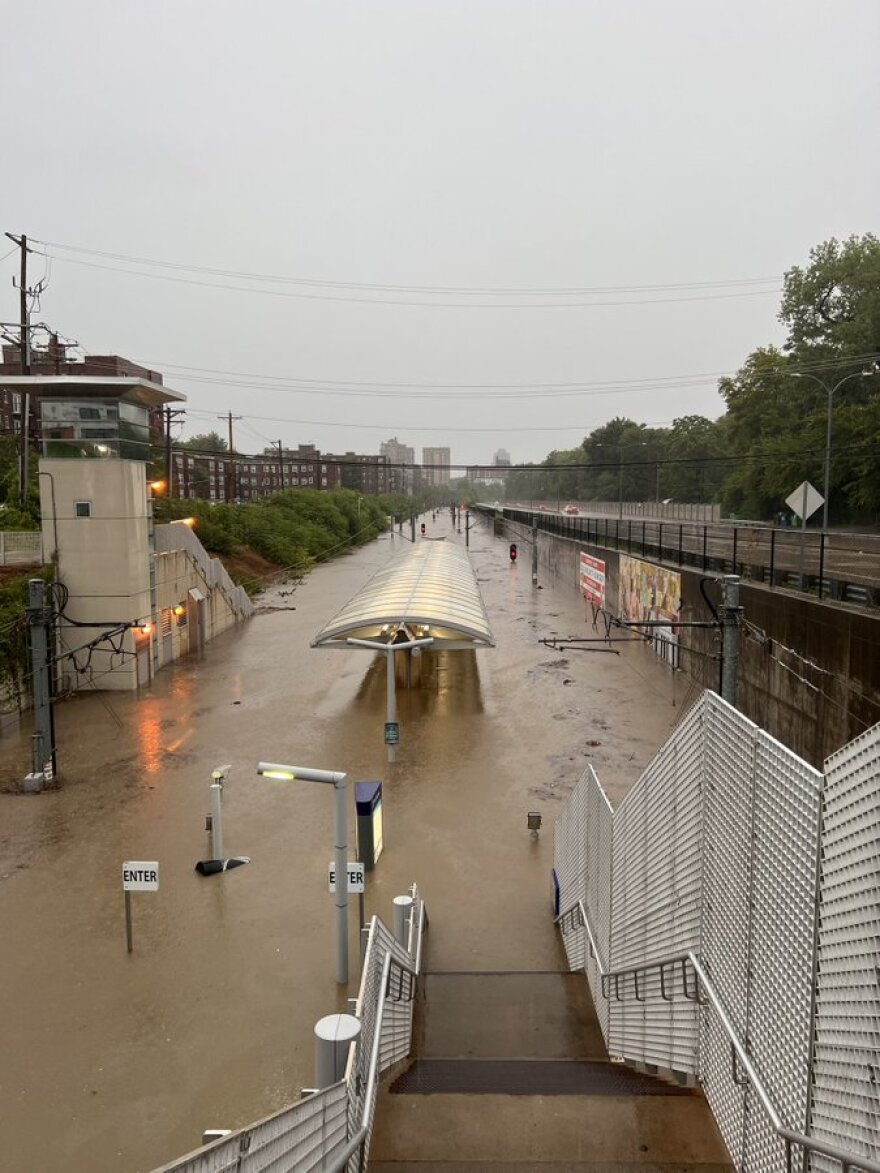The operator of MetroLink said service will resume Monday at every station on the company’s Blue Line, now that significant repairs to its system have been made following last month’s flash flooding.
Most of the damage occurred in a two-mile section between the Forest Park-DeBaliviere and Delmar stations, officials with Bi-State Development, which runs MetroLink, said Thursday. MetroLink has used shuttle buses over the past few weeks to connect riders between its Blue and Red Lines.
Starting Monday, train service at the Forest Park-DeBaliviere station will run on single tracks. All eastbound and westbound Red Line trains at the DeBaliviere station will board on the westbound side of the platform. Blue Line trains at that station will run on the eastbound side.
All eastbound and westbound trains at the Skinker and University City-Big Bend stations will board on the eastbound platform. The trains in both areas will run at reduced speeds every 20 minutes.
“We've had folks out working double [overtime] 24-hour shifts, trying to get back up to service and keep moving St. Louis,” Bi-State President and CEO Taulby Roach said.

The Forest Park-DeBaliviere Station connects the Blue and Red Lines and provides critical communications for the MetroLink system.
The flooding also ruined a MetroLink train at its Delmar Loop Station, five miles of train tracks, a call-a-ride bus and two elevators at the Forest Park-DeBaliviere Station. Five signal houses will be rebuilt, and communication rooms and fiber optic wires will be repaired.
Roach said those repairs, other improvements and labor costs add up to $40 million, up from an earlier estimate of $20 million. He said the new total will help Bi-State Development prepare for future flooding.
“When the [Federal Transit Administration] and our federal partners were in town, one of the things they asked us to do was build for resiliency so that if this problem happened again, that we would be able to take it,” Roach said. “So we are not only building to restore service, but we're also building to get a better, more resilient system, a system that can react to these unprecedented storms that we're going to continue to see as time goes on.”
Bi-State leaders are seeking state and federal emergency management funding to help cover the damages. Roach expects the $40 million be offset through the system’s insurance policy, which has a limit of $25 million.
Follow Chad on Twitter: @iamcdavis






